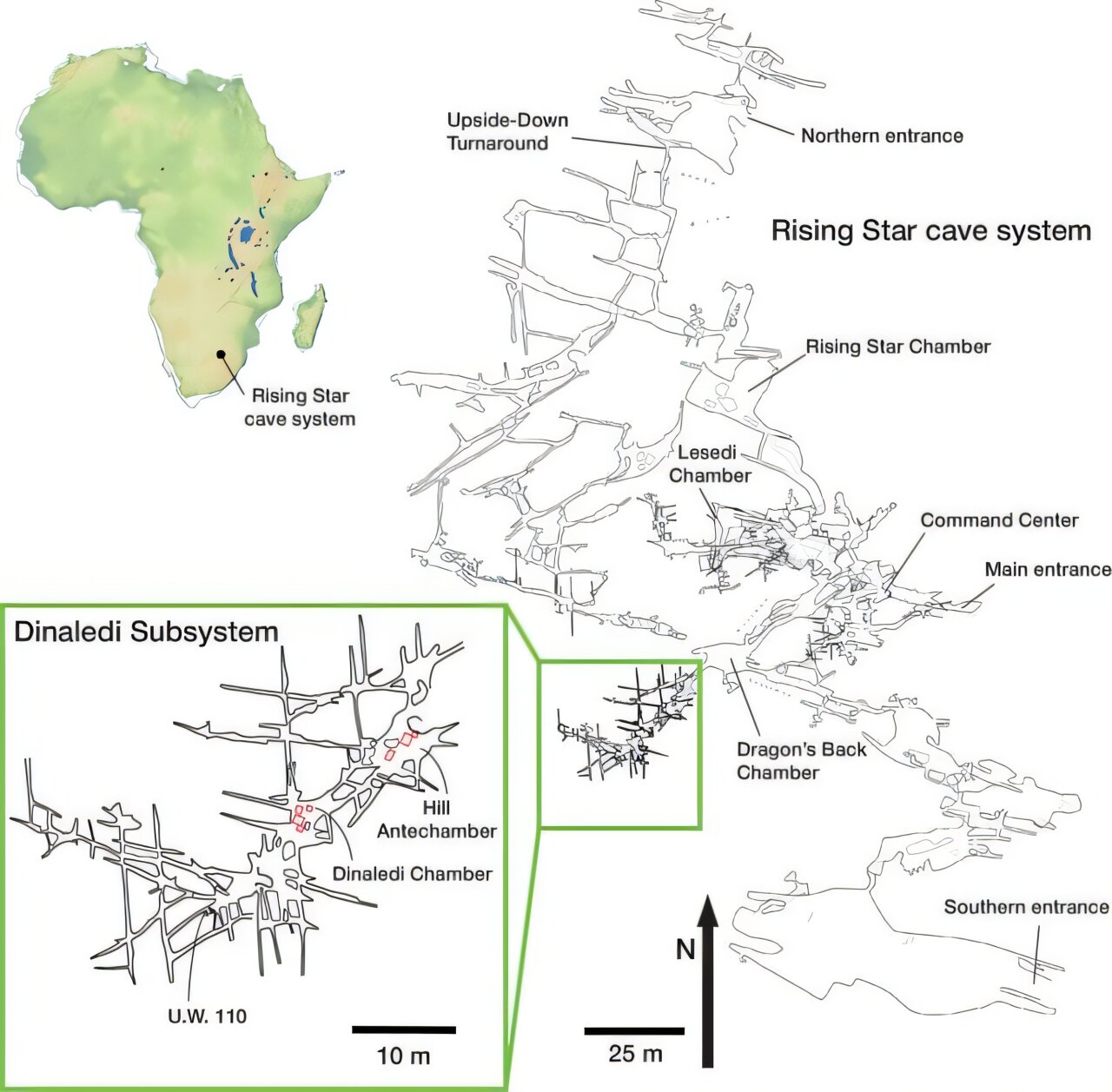Homo naledi Burial Evidence Challenges Views on Early Human Cognition
Key Takeaways (10 Theses)

Discovery Context
The Rising Star cave system in South Africa has yielded over 1,500 fossilized bones from at least 15 Homo naledi individuals, first announced in 2015.
Unusual Recruitment
The project began with a Facebook call for small, fit anthropologists to navigate the cave’s narrow, treacherous passages, highlighting the extreme fieldwork conditions.
Unique Anatomy
Homo naledi combined modern human–like hands and feet with more primitive hips and shoulders, stood under 5 feet tall, and had a brain the size of a modern human infant’s.
Cognitive Implications
Burial had long been considered a behavior exclusive to modern humans and possibly Neanderthals. Evidence from naledi suggests symbolic or practical burial practices by small-brained hominins over 240,000 years ago.
Skepticism and Collaboration
Early claims of deliberate burial met skepticism due to limited external review. The new study includes authors from 28 institutions across six countries, addressing earlier concerns.
New Fossil Evidence
Researchers identified 90 skeletal elements and 51 teeth, including juveniles, with articulated remains (foot, hand, ribs, teeth) that strongly suggest deliberate placement.
Sediment Analysis
Soil composition rules out natural processes like flooding or sediment collapse; bones were unlikely moved by animals or water, supporting intentional burial.
Challenging Journey
Bodies would have been carried 30 meters down into the cave, in darkness or by firelight, suggesting determination and possible symbolic or practical motivations.
Practical and Symbolic Benefits
Burial reduced odors, deterred predators, and spared survivors from distressing encounters with remains—while possibly reflecting sentiment or early spiritual beliefs.
Evolutionary Significance
If confirmed, Homo naledi practiced intentional burial more than 100,000 years before modern humans, reshaping our understanding of hominin cognition and cultural behavior.
2025-09-11 11:19:50